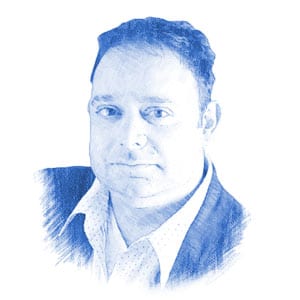France has a rich Jewish history and a vibrant Jewish community of approximately 500,000 souls. At the same time, France is a country where anti-Semitism has deep, seemingly immutable roots. Modern Zionism evolved partly as a reaction to the Dreyfus trial at the end of the 19th century, while in the middle of the 20th around 90,000 Jews were murdered during the Nazi Holocaust.
In our own time, France has provided fertile ground for Holocaust deniers, known in local parlance as “negationistes.” During the last 10 years, we have witnessed a horrifying hate crime involving the kidnapping and murder of a young Jew, Ilan Halimi, an Islamist terror attack on a Jewish school in Toulouse that claimed the lives of three children and a rabbi, and a burgeoning anti-Semitic social movement that takes as its symbol an inverted Nazi salute known as the “quenelle.”
Small wonder, then, that French Jewish leaders are continually asked whether their community has a future in the long-term. Nonetheless, it is a question—as I discovered when I met with a delegation from CRIF, the representative body of French Jewry, in New York this week—which the leaders answer with patience and good grace.
At the head of the delegation is Roger Cukierman, the elder statesman of French Jews who was first elected as CRIF’s president in 2001. Sitting in the offices of the World Jewish Congress, where he also serves as a vice president, Cukierman was candid about the profound problems the community faces, while emphasizing its extraordinary durability. “There have been Jews in France for the last 2,000 years,” Cukierman said, listing the names of Rashi, the great 11th-century rabbi; Michel de Montaigne, the 16th-century Renaissance author; and Marcel Proust, the 20th-century novelist. Even as he acknowledged the many instances of anti-Semitic persecution through the ages, Cukierman noted simply and proudly, “We are still here. And we are not the only country where anti-Semitism is developing. It may develop in America also.”
Still, there is a genuine urgency about the situation in France. A recent survey of global anti-Semitism issued by Tel Aviv University reported 110 violent attacks on French Jews in 2013—the highest single number for any country. More alarming is the fact that although Jews make up just one percent of the French population, they are the target of 40 percent of racist assaults in the country. It isn’t surprising, then, that David Tibi, a Jewish leader in Paris, recently declared, “We no longer have a place in France.”
Cukierman is insistent that Jews do have a place in France, adding that anti-Semitism emanates from three distinct sources, rather than being a general phenomenon. First, there is the far right—and particularly the National Front party—which has traditionally been the home of Holocaust deniers and Vichy-era apologists. Second, there is the far left, whose aggressive promotion of the BDS campaign against Israel “affects the comfort of living in France for Jews,” Cukierman said. Third, there are the “banlieues,” run-down suburbs that are home to many disaffected Muslim youths who are frequently the executors of violent anti-Semitic acts.
Any mention of the banlieues inevitably leads to a discussion of Dieudonne M’bala M’bala, the notorious comedian whose attempts at humor are often little more than crude Jew-baiting antics. It was Dieudonne who popularized the quenelle, the anti-Semitic gesture that became internationally known when it was performed by the French soccer star Nicholas Anelka, a friend of Dieudonne’s, during a match in England.
Among the numerous challenges in responding to Dieudonne is his appeal to young people in France, many of whom are attracted by his anti-establishment stance, his hatred of Israel, and his mockery of the Holocaust. So brazen is Dieudonne that he recently suggested to Ilan Halimi’s mother, Ruth, that the two of them embrace the idea of “reconciliation”—this in spite of the fact that Dieudonne has openly defended one of the murderers of her son. Ruth Halimi, of course, rejected Dieudonne’s overtures, but his general appeal remains strong—and using conventional methods, like anti-discrimination legislation, to counter him merely boosts his reputation.
Dieudonne, Cukierman said, brings together the “extreme right with the black and Muslim population.” How to reverse this trend is an especially knotty question. Yonathan Arfi, a young CRIF leader traveling with Cukierman, observed that historically, European Jews have adopted a “vertical” approach to anti-Semitism, pushing for government agencies to address the problem. But nowadays, Arfi continued, the approach is becoming more “horizontal”—in other words, engaging and dealing directly with the twists and turns of public attitudes to Jews, their religion, their culture, and their political loyalties.
France, in that sense, increasingly seems like a laboratory for both contemporary anti-Semitism and our response to it. I left my conversation with the CRIF delegation with two abiding impressions: that the Jewish presence in France will be sustained, and that, as the young leaders accompanying Cukierman proved, there is no shortage of fine minds to take the community forward. How they manage the persistence of French anti-Semitism will, however, be the most fearsome test they face.
Reprinted from JNS.org




